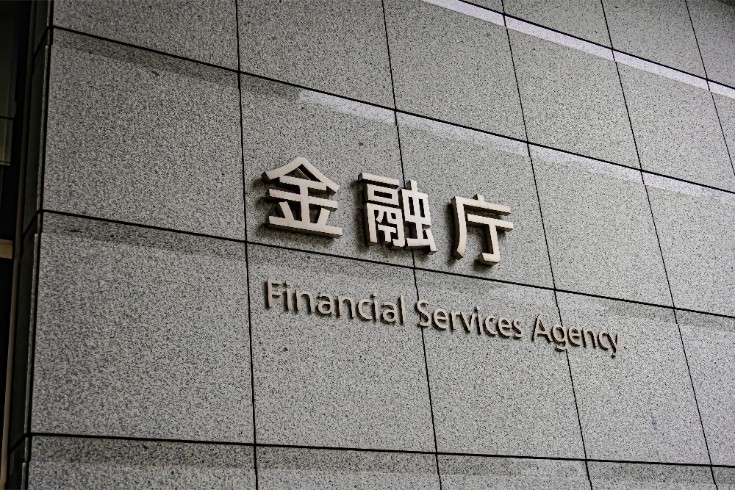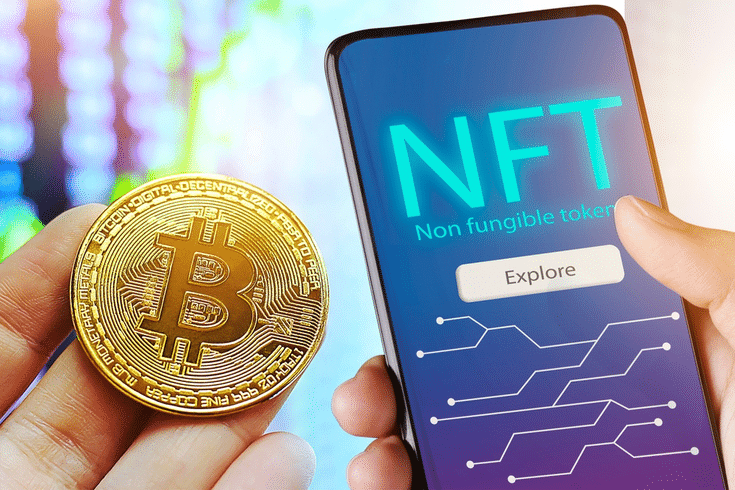August of Reiwa 6 (2024): Easing of Digital Securities (Security Tokens) Regulations - Explaining the Details and Impact

The Financial Services Agency of Japan has announced that regulations on digital securities (security tokens, hereinafter referred to as STs) will be relaxed in August of Reiwa 6 (2024). The aim of this regulatory relaxation is to promote the widespread adoption of digital securities within the country. With the domestic total issuance volume reaching 100 billion yen in the fiscal year 2023, the digital securities industry, which is garnering significant attention, is poised to be impacted by this regulatory easing by the Financial Services Agency. What effects can we expect from this development?
In this article, we will explain what digital securities are, the details of the recent regulatory relaxation, and its potential impact.
What Are Digital Securities?
Overview of Digital Securities (Security Tokens, ST)
Digital securities are tokenized rights of securities. They are securities like stocks, bonds, and investment trusts, issued using blockchain technology. This allows for the representation of traditional securities rights in a digital format.
The correct term for digital securities is “Electronically Recorded Transferable Rights (ERT Rights),” which are stipulated in the amended Japanese Financial Instruments and Exchange Act and related government ordinances that came into effect on May 1, Reiwa 2 (2020). While stocks and investment trusts have also been digitized, there are differences between traditional securities and digital securities. What are these differences?
Related article: What is Web3 Law? Explaining Key Points for Companies Entering the Space[ja]
What Sets Digital Securities Apart from Traditional Securities?

Firstly, a distinctive feature of digital securities compared to traditional securities is that they can be purchased directly from the issuing companies. Typically, companies issuing traditional securities entrust the sale to securities firms. This is because securities are generally managed centrally by an organization called the ‘Japanese Securities Depository Center (JASDEC),’ as defined by the ‘Japanese Law Concerning Book-Entry Transfer of Corporate Bonds, Shares, etc.’ In contrast, digital securities are designed to be exempt from this application, and instead of being managed by JASDEC, they are issued and managed on a proprietary infrastructure utilizing blockchain technology, where transactions are recorded.
Another significant difference lies in efficiency.
Digital securities enable the automation of transactions and the securities issuance process through programs known as smart contracts. For example, when paying dividends on shares, there is no need to involve third-party financial institutions, which allows for cost and time efficiency improvements.
On the other hand, traditional securities transactions involve many procedures and intermediaries, requiring complex processes that are less efficient in comparison.
Characteristics of Digital Securities
One of the personalityistics of digital securities is the ability to engage in a variety of transactions in small denominations.
For example, real estate can also be traded through digital securities. With real estate STOs (Security Token Offerings), land and properties that cannot actually be divided are transformed into purchasable units using blockchain technology, enabling transactions in small amounts.
Similarly, one difference from REITs (Real Estate Investment Trusts), which allow for the fractional cashing of real estate, is the difference in investment targets.
While digital securities invest in a single property, REITs invest in the shares of corporations that hold multiple properties. Therefore, digital securities offer the advantage of being able to invest in specific properties, making the investment targets more transparent.
Additionally, the price movements differ. Digital securities are traded based on their valuation, whereas REIT prices are constantly affected by stock market trends and can fluctuate due to interest rates and transactions by large investors.
Furthermore, there is a difference in liquidity. REITs are traded on the stock market, which means they have high liquidity and investors can buy and sell them relatively easily. On the other hand, digital securities have traditionally been sold mainly through brokerage firms, limiting the trading scenarios.
With these numerous advantages, the spread of digital securities is advancing in Japan as well.
Current Status and Background of Digital Securities Regulation in Japan
As we have explained so far, while digital securities possess many advantages, they also face various regulatory challenges.
Regulations on the Sale and Solicitation of Digital Securities
Financial instruments business operators, when selling or soliciting, are subject to the same conduct regulations under the Japanese Financial Instruments and Exchange Act, transaction verification under the Japanese Act on Prevention of Transfer of Criminal Proceeds, and obligations to explain important matters under the Japanese Financial Services Agency Law as with stocks and corporate bonds (however, it should be noted that security tokens (ST) are currently non-listed securities).
Similarly, to the first-category securities such as stocks and corporate bonds, obligations are imposed for conduct regulations under the Japanese Financial Instruments and Exchange Act, transaction verification under the Japanese Act on Prevention of Transfer of Criminal Proceeds, and explanations of important matters under the Japanese Financial Services Agency Law.
Digital securities, in addition to explaining the content of the products such as trust beneficiary rights or interests in collective investment schemes and investment risks, are subject to strict regulations due to the different risks associated with their holding form, transfer, settlement, and other aspects compared to other securities.
- Suitability Principle (Transaction Initiation Criteria)
Disclosure and measures regarding policies for segregated management operations when conducting management operations (Cabinet Office Ordinance Article 70-2, Paragraph 5)
- Regulations on Advertising
When advertising, care must be taken not to mislead regarding the nature of the digital securities being handled or the mechanisms for their storage and transfer (same Article 78)
- Explanation of Digital Securities Overview (Pre-Contractual Delivery Documents)
When delivering pre-contractual delivery documents in the sale and purchase of digital securities, it is necessary to caution about the nature of digital securities (same Article 83)
Thorough Segregated Management of Digital Securities, etc.
Firstly, financial instruments business operators handling digital securities are required to ensure thorough segregated management and measures against outflow risks.
“Financial instruments business operators must manage securities and money entrusted by customers separately from their own property in a secure and orderly manner” (Japanese Financial Instruments and Exchange Act Article 43-2)
Furthermore, securities tokenized as digital securities typically come with a private key (the key in a pair of keys used in public-key cryptography that is not generally disclosed) necessary for investors to transfer tokens, etc. When financial instruments business operators accept the custody of digital securities, they usually receive the custody of the private key from investors and manage it separately from their own property or that of an external contractor based on the provisions for segregated management in laws and internal regulations.
In this case, “information necessary to transfer the property value represented by electronic record transferable securities rights, which are customer securities, must be recorded and managed on electronic devices, electromagnetic recording media, or other recording media [commonly known as cold wallets] that are not constantly connected to the internet, or by methods that employ equivalent technical security management measures” (Cabinet Office Ordinance concerning Financial Instruments Business Operators, Article 136, Paragraph 1, Item 5).
Reference: About the Current Status of Security Tokens, etc.[ja]
The Changes Brought by the Deregulation of Digital Securities

The recent deregulation can be broadly divided into the following two points:
- A single financial group can now handle everything from the issuance to the underwriting and sale of digital securities.
- Expansion of the items that financial institutions must disclose to investors.
The Financial Services Agency has announced plans to revise the Cabinet Office Ordinance to allow a single financial group to handle the issuance, underwriting, and sale of digital securities, thereby promoting an increase in the number of products and making it easier for investors to purchase them.
The deregulation targets digital securities backed by real estate properties, which account for approximately 85% of the total issuance volume of digital securities, specifically including commercial facilities, hotels, and large condominiums as the underlying assets.
As previously explained, under the principle of segregated management, securities companies within the group of the trust bank that structured these digital securities were not allowed to participate in the underwriting. This limited the number of securities companies handling digital securities, preventing them from fully leveraging the benefits of being able to trade 24/7 and the ease of fundraising. Therefore, with this deregulation, the existing rules are revised to aim for an increase in the number of issues and market expansion.
If this deregulation is implemented, not only will a single financial group be able to anticipate revenue from issuance to underwriting and sales as an issuer, but the increase in the number of products will also make it easier for investors to purchase, potentially leading to an increase in the issuance of digital securities and the number of projects.
In line with the deregulation, the Japan Securities Dealers Association plans to establish rules for investor protection. Specifically, financial institutions will expand the items they disclose to investors, ensuring transparency in price determination and reducing the risk of investors being disadvantaged. Trust banks issuing digital securities will disclose the history of price determination discussions with independent securities companies outside their group and whether any fees were paid.
For price setting, it is deemed appropriate to calculate the valuation amount by real estate appraisers and certified public accountants, and the approval of independent securities companies will also be a condition.
The Anticipated Effects of Deregulation in Digital Securities

Stimulating Growth in the Digital Securities Market
The domestic digital securities market is on an expansion trend, with the transaction volume for fiscal year 2023 estimated at approximately 100 billion yen, and it is forecasted to reach 170 billion yen in fiscal year 2024, indicating potential for future growth. However, due to regulations such as the Japanese Financial Instruments and Exchange Act, the number of securities companies that can handle digital securities has been limited, preventing the establishment of sufficient distribution channels. Additionally, the inability to manage everything from issuance to sales in a one-stop manner has made it difficult for issuers to concretely predict expected revenues. These factors have been hindering the widespread adoption of digital securities.
Traditionally, the process for circulating digital securities involved asset management companies owning real estate, from which trust banks created fractionalized digital securities, which were then underwritten by unrelated securities companies for sale. However, with the recent deregulation, securities companies within the group of trust banks can now also undertake underwriting and sales, which is expected to increase the number of digital securities issued and circulated, thereby stimulating investor activity.
Appealing to Domestic and International Investors
Deregulation is expected to increase the absolute volume of digital securities circulating domestically, thereby expanding the range of investment options available to investors.
Furthermore, from the perspective of diversification for risk management, the increase in the number of digital securities products is a significant benefit for investors.
In particular, digital securities related to real estate, unlike REITs, are less susceptible to market fluctuations and allow investors to feel a stronger sense of ownership, which is a major attraction and is expected to encourage investment activity.
Providing New Means of Fundraising
The deregulation is expected to facilitate the issuance and sale of digital securities, which could energize Security Token Offerings (STOs) as a means of raising funds through the issuance of security tokens (ST).
Initial Coin Offerings (ICOs), which lack underlying assets, have been plagued by fraudulent transactions. In contrast, Initial Public Offerings (IPOs) require maintaining performance while building an internal management system to meet the listing criteria of stock exchanges, as well as preparing a vast amount of application documents, making the fundraising process complex and challenging over several years.
However, STOs allow for fundraising even before the start of business or services and do not demand as much documentation or structure as IPOs, thus reducing the burden on companies.
Additionally, by securitizing and tokenizing various assets held by companies, it is expected that the diversification of corporate fundraising methods can be achieved.
Related article: What is the difference between STO and ICO? Explaining the concept of security tokens and the significance of STOs[ja]
Trends in the Deregulation of Digital Securities
Responses from Financial Institutions and Corporations
In Japan, the Osaka Digital Exchange (ODX), funded by groups such as SBI Group and Sumitomo Mitsui Financial Group, has launched a private trading system called “START,” and began trading digital securities in December of Reiwa 5 (2023). With the Financial Services Agency’s recent deregulation, the transaction volume is expected to increase significantly.
Furthermore, ahead of the deregulation, Tokyo has initiated calls for projects and grants to promote the expansion of the digital securities market, garnering increasing attention.
Future Market Trends and Predictions
The Boston Consulting Group estimates that the global issuance of digital securities, which was valued at 310 billion dollars in 2022, will swell to 16.1 trillion dollars by 2030. The market value of digital securities as an investment target is expected to increase significantly worldwide.
Summary: Market Expansion Expected Due to Eased Regulations on Digital Securities
The key points of the regulatory easing announced by the Japanese Financial Services Agency are as follows:
- Simplification of issuance procedures
- Enhanced investor protection
Here, we have explained the easing of regulations on digital securities announced by the Japanese Financial Services Agency, starting from an explanation of digital securities themselves to the details of the regulatory changes. With these regulatory relaxations, it is anticipated that the number of digital securities cases in the market will significantly increase in the future.
As grants, subsidies, and support programs expand, careful consideration is required to understand what procedures will be necessary.
Guidance on Measures by Our Firm
Monolith Law Office is a law firm with high expertise in both IT, particularly the internet, and legal matters. Our firm provides comprehensive support for businesses involved in crypto assets and blockchain. Please refer to the article below for more details.
Areas of Practice at Monolith Law Office: Crypto assets & Blockchain[ja]
Category: IT





















